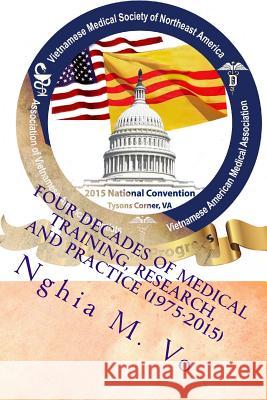Four Decades of Medical Training, Research, and Practice (1975-2015): The Vietnamese-American Experience » książka
Four Decades of Medical Training, Research, and Practice (1975-2015): The Vietnamese-American Experience
ISBN-13: 9781514761441 / Angielski / Miękka / 2015 / 282 str.
Four Decades of Medical Training, Research, and Practice (1975-2015): The Vietnamese-American Experience
ISBN-13: 9781514761441 / Angielski / Miękka / 2015 / 282 str.
(netto: 76,23 VAT: 5%)
Najniższa cena z 30 dni: 80,26
ok. 16-18 dni roboczych
Bez gwarancji dostawy przed świętami
Darmowa dostawa!
When I embarked on this project back on one cold January day of 2015 (this was one of the coldest winters I had ever witnessed with its relentless cold snaps and winter storms that froze my ideas at times), I thought I would only receive a lukewarm response from the Vietnamese-American community because I did not know the great majority of these practitioners-many of them being from the 2.0 generation. They did not know me and I did not know them either. It was basically a "cold sale" process. And I wondered how to approach these physicians, how to entice them to write essays about their training, research, and practice and to open the door to their hearts and souls. Doctors are a strange group of people. They ask a lot of questions from their patients but one never knows what goes inside their minds. I was also leery about the time factor. Since their time is limited and therefore, very valuable, they might not want to spend time writing an essay for a stranger. Then, there is a big difference between writing a scientific paper or a textbook and trying to explain your feelings in an essay. It is then not surprising that a few who had written papers and medical textbooks in English before, categorically refused to write an essay for me. In their case, English is not the main reason. The great majority, especially the first-generation physicians, simply do not feel comfortable enough to write in English, although they have lived in the U.S. for quite a long time. In the end, they wrote more than half of the book you are holding in your fingers. Although the reactions of some physicians are predictable, the response I got from the majority of them remains a mystery to me. Some volunteered on the spot to work with me while others did not even return my email. I am thankful to the essayists who volunteered their time and effort to write the essays and to open their hearts and thoughts to the Vietnamese community in particular and to the wide audience in general. Along the way, I have made new acquaintances and known more people than I had ever expected. I did not know that there are that many successful compatriots working out there in the U.S. as well as in Canada. I am privileged to have known them. In these essays, the contributors have narrated their journeys in the U.S. health care system during the last four decades. As each journey is personal-many have even indicated it in the title of their essays-each one is different from the other. The resulting complex tapestry of journeys provides us with an insight into the ways they have responded to and dealt with their personal, social, and professional problems in a time of upheaval. They have opened their hearts and minds to the public and offered a glimpse of their often tumultuous lives from their war-torn country to the peaceful U.S. While the first-generation physicians tend to detail their harrowing escapes from communist Vietnam, their retraining, and practice in the US, the second-generation physicians attempt to define their identity and their place in the health care system of their adopted country, the U.S. The essays not only represent the "voices" of a new enterprising health care community, but also a historical perspective from an emerging minority community in the U.S.
Zawartość książki może nie spełniać oczekiwań – reklamacje nie obejmują treści, która mogła nie być redakcyjnie ani merytorycznie opracowana.











